Nuran Kasthuriarachchi
Self-Supervised Vision Transformers for Malware Detection
Aug 15, 2022
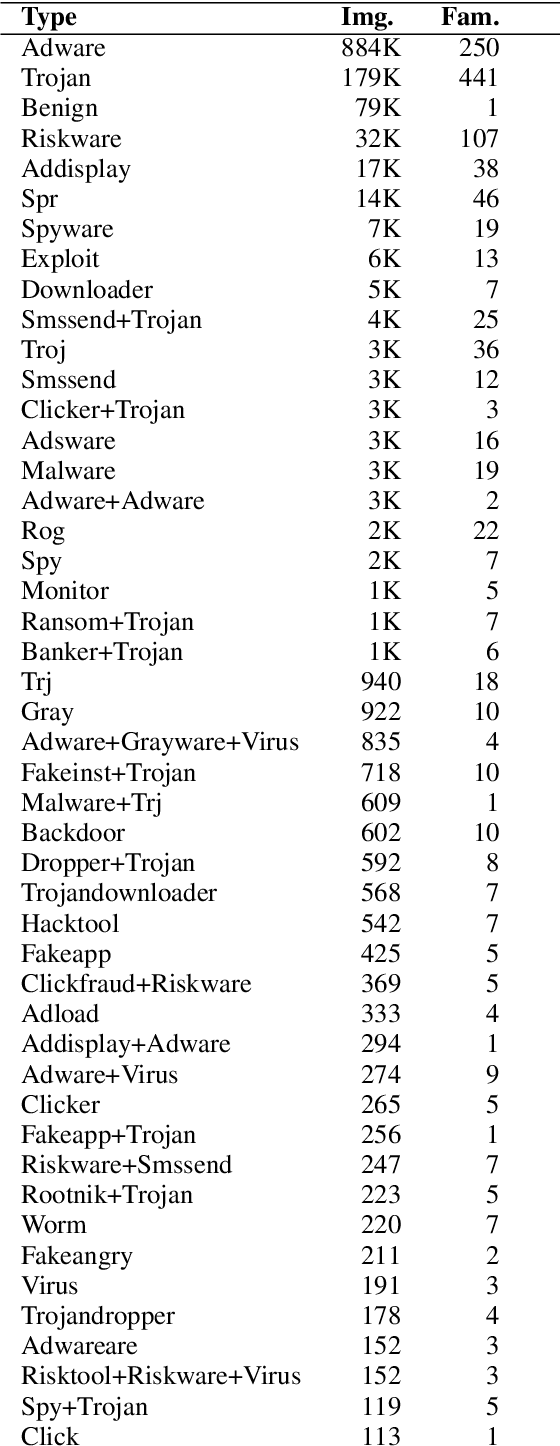


Abstract:Malware detection plays a crucial role in cyber-security with the increase in malware growth and advancements in cyber-attacks. Previously unseen malware which is not determined by security vendors are often used in these attacks and it is becoming inevitable to find a solution that can self-learn from unlabeled sample data. This paper presents SHERLOCK, a self-supervision based deep learning model to detect malware based on the Vision Transformer (ViT) architecture. SHERLOCK is a novel malware detection method which learns unique features to differentiate malware from benign programs with the use of image-based binary representation. Experimental results using 1.2 million Android applications across a hierarchy of 47 types and 696 families, shows that self-supervised learning can achieve an accuracy of 97% for the binary classification of malware which is higher than existing state-of-the-art techniques. Our proposed model is also able to outperform state-of-the-art techniques for multi-class malware classification of types and family with macro-F1 score of .497 and .491 respectively.
Does a Face Mask Protect my Privacy?: Deep Learning to Predict Protected Attributes from Masked Face Images
Dec 15, 2021

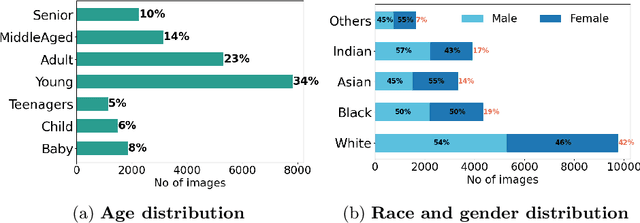
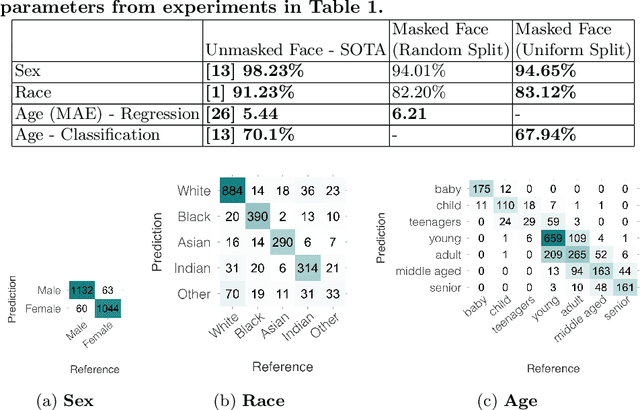
Abstract:Contactless and efficient systems are implemented rapidly to advocate preventive methods in the fight against the COVID-19 pandemic. Despite the positive benefits of such systems, there is potential for exploitation by invading user privacy. In this work, we analyse the privacy invasiveness of face biometric systems by predicting privacy-sensitive soft-biometrics using masked face images. We train and apply a CNN based on the ResNet-50 architecture with 20,003 synthetic masked images and measure the privacy invasiveness. Despite the popular belief of the privacy benefits of wearing a mask among people, we show that there is no significant difference to privacy invasiveness when a mask is worn. In our experiments we were able to accurately predict sex (94.7%),race (83.1%) and age (MAE 6.21 and RMSE 8.33) from masked face images. Our proposed approach can serve as a baseline utility to evaluate the privacy-invasiveness of artificial intelligence systems that make use of privacy-sensitive information. We open-source all contributions for re-producibility and broader use by the research community.
MFR 2021: Masked Face Recognition Competition
Jun 29, 2021

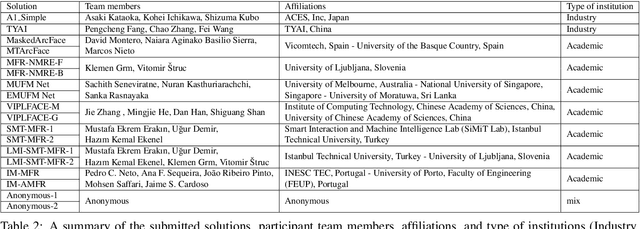
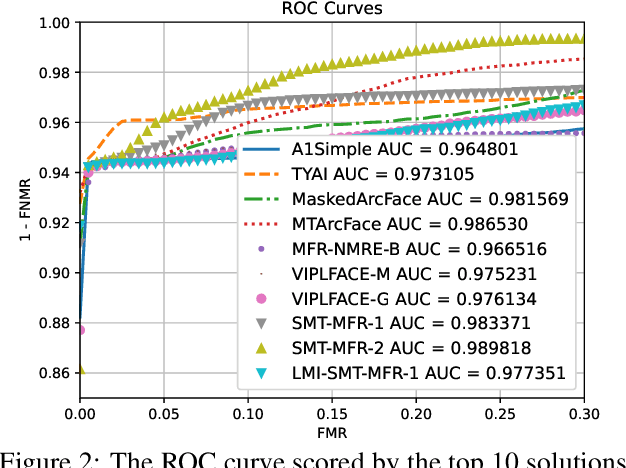
Abstract:This paper presents a summary of the Masked Face Recognition Competitions (MFR) held within the 2021 International Joint Conference on Biometrics (IJCB 2021). The competition attracted a total of 10 participating teams with valid submissions. The affiliations of these teams are diverse and associated with academia and industry in nine different countries. These teams successfully submitted 18 valid solutions. The competition is designed to motivate solutions aiming at enhancing the face recognition accuracy of masked faces. Moreover, the competition considered the deployability of the proposed solutions by taking the compactness of the face recognition models into account. A private dataset representing a collaborative, multi-session, real masked, capture scenario is used to evaluate the submitted solutions. In comparison to one of the top-performing academic face recognition solutions, 10 out of the 18 submitted solutions did score higher masked face verification accuracy.
 Add to Chrome
Add to Chrome Add to Firefox
Add to Firefox Add to Edge
Add to Edge